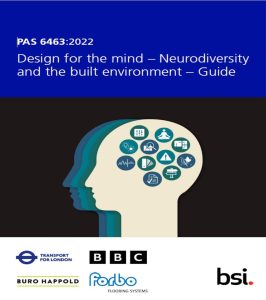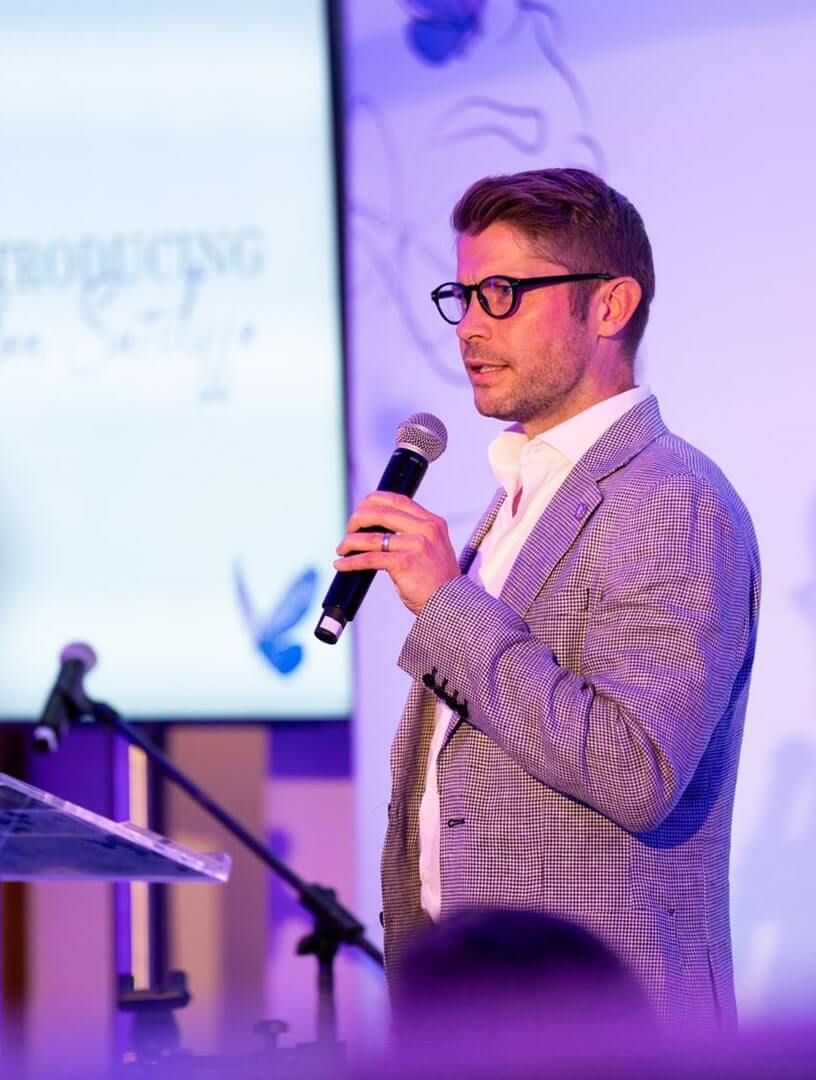Caudwell Children celebrate the launch of first ever BSI guidance on designing for neurodiversity
Summary:
- PAS 6463:2022 Design for the mind – Neurodiversity and the built environment
- CEO, Trudi Beswick, sat on steering committee for creation of landmark publication to be used across the construction industry
- Guidance aims to help create more accessible buildings and environments in the future
Caudwell Children has welcomed the publication of new guidance from The British Standards Institution (BSI) entitled ‘Design for the mind – Neurodiversity and the built environment’, which aims to shape the way all buildings and environments are created in the future to cater for neurodivergent users.
 Created by the BSI with input from a steering group of experts, including Caudwell Children CEO, Trudi Beswick, the 124-page guide is believed to be the first standard that has been developed by a national standards body that provides built environment guidance for multiple sensory processing differences and conditions.
Created by the BSI with input from a steering group of experts, including Caudwell Children CEO, Trudi Beswick, the 124-page guide is believed to be the first standard that has been developed by a national standards body that provides built environment guidance for multiple sensory processing differences and conditions.
Mrs Beswick, who Design Managed the award-winning Caudwell International Children’s Centre (CICC) in Staffordshire, commented on the release: “Lots of people find certain aspects of building designs difficult to manage, even distressing, and this can be a barrier to their use so I’m delighted this guidance has been published. It has taken lots of time and dedication by the steering group and the technical author to collate a wealth of information and experience into a single practical guide for the industry to use.”
“The lessons we learnt through robust stakeholder engagement when designing the CICC have all been shared and now feature in this document. We hope that our collective insight will now influence the built environments of the future, making them more accessible to people with different sensory profiles and neurodivergent conditions like autism, adhd and dementia.”
The guidance aims to help with the design, creation or management of intuitive environments which readily accommodates the neurological variations in the way people perceive, process and organize sensory information received through hearing, sight, touch, smell, taste or movement.
The content of this document is aimed at buildings, external spaces and environments for public and commercial use, as well as residential accommodation for independent or supported living. The content is equally applicable to any organisation anywhere in the world, irrespective of location, size, type, or sector.
Mrs Beswick continued: “We want to create a world where all people have the choice, opportunity, dignity and understanding they deserve; creating buildings that take diverse sensory profiles into account is another step towards creating that world and therefore I urge the construction industry to adopt the recommendations clearly outlined in the new publication and create truly inclusive spaces in the future.”
For advice or consultancy on new construction projects to ensure they meet the standards outlined please contact ben.sutcliffe@caudwellchildren.com
)

)
)
)
)